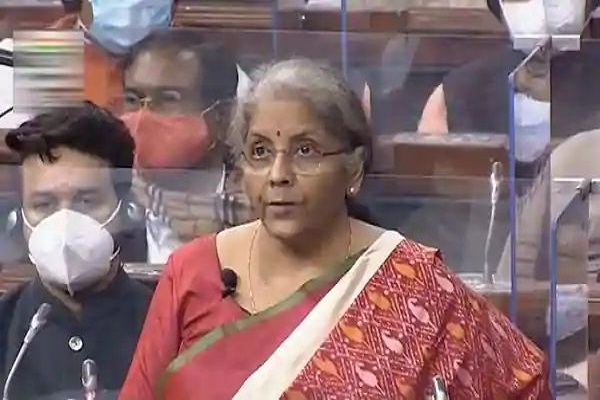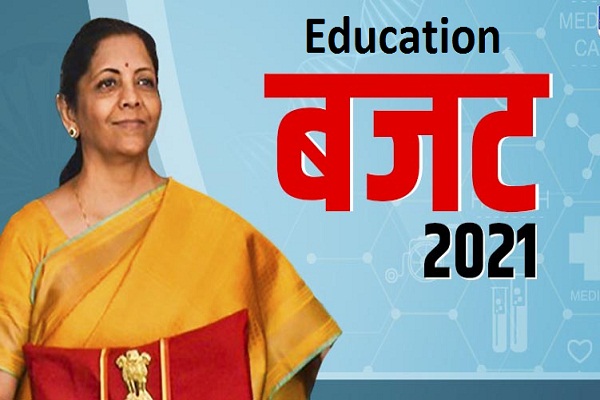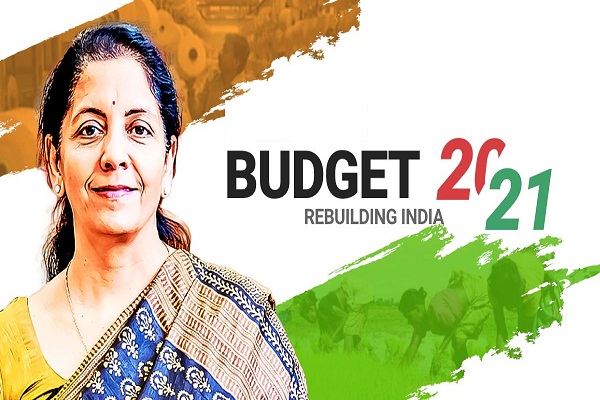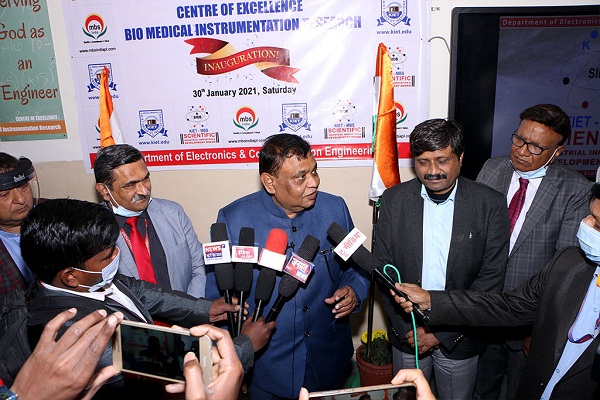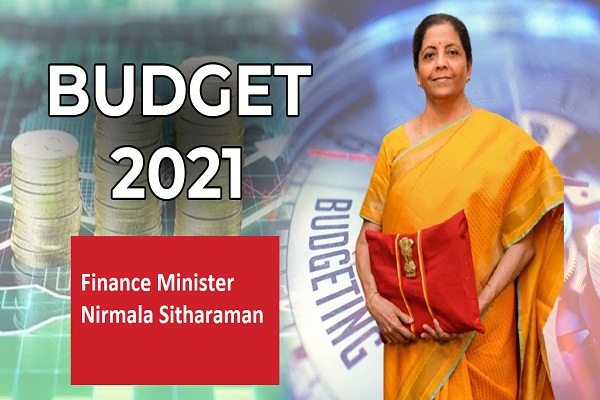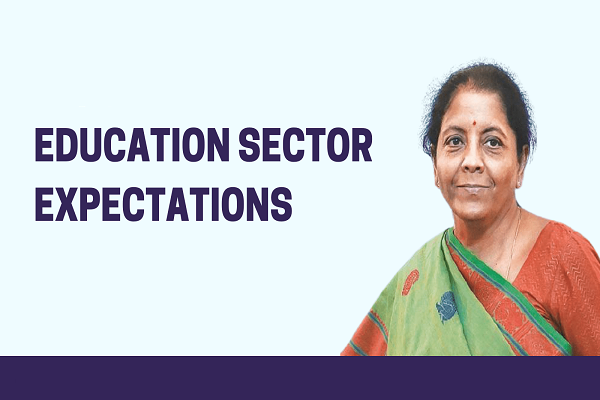The Union Finance Minister, Nirmala Sitharaman, presented her third budget today. The Union budget 2021-2022 reinforces the vision of Nation First. Some of them double farmers’ incomes, strong infrastructure, women’s empowerment, healthy India, good governance, education for all, inclusive development, and much more. As part of the 2021 education budget, she said the country’s youth have abundant skills and the government will focus on channeling them properly.
Let’s take a look at the view of industry leaders over Budget 2021:
Rishabh Khanna, Cognitive Scientist & Founder of Suraasa said “The National Education Policy has clearly shown India’s vision and bright future for school education and higher education in the country. Its implementation in 15,000 schools is an excellent start toward a more holistic education approach and a good deliverable for the union budget. International partnerships are a must for India to become a global workforce supplier. Partnerships with countries like UAE, which have been successful in improving the quality of learning outcomes with their national standards and licensing systems, will act as key drivers in bringing our education system at par with international standards.”
Ganesh Raju, Founder & CEO Ken42 said, “Budget 2021 is growth-oriented and presents a lot for the industry to look forward to as the country recovers from the pandemic. At 600 million, the youth comprise more than half of our population, and the budget has included announcements to improve their lives and education, as well as the future of the nation. The announcement to strengthen 15,000 schools as part of the National Education Policy (NEP) 2020 will be a major fillip to the quality of school education. The proposal to start an apprenticeship and embedded degree and diploma courses for students in non-science and technology streams in 150 higher education institutes by March 2021 will increase the available opportunities to students for upskilling and employment. It’s also likely to open up more opportunities for edtech companies to collaborate with the government education sector.”
Also read: Key points for Education Budget 2021; check details
Dr. Dishan Kamdar, Vice-Chancellor, FLAME University said “The Government’s decision to allocate Rs.50,000 crores over 5 years will serve as a great shot in the arm for the country’s research ecosystem. Lack of adequate funding has been a constraint for several higher education institutions and this support will enable the institutions and the faculty to produce high quality, rigorous research output. The creation of the Higher Education Commission of India (HECI) as an umbrella structure having four separate bodies for standard-setting, accreditation, regulation, and funding under it will bring in synergies across higher education institutions. In addition, a regulatory mechanism to promote academic collaboration with foreign higher educational institutions will help pave the way for Indian higher education institutions to become truly global in the near future”.
Dr. R.L. Raina, Vice-Chancellor, JK Lakshmipat University, Jaipur said “The first digital budget presented by the Union Finance Minister Nirmala Sitharaman is a practically fulfilling budget as it has duly focused on the key areas – health and education and provided robust infrastructure in these sectors. When it comes to education, the budget has announced every needed move to make education reach the last miles of the country be it setting up a higher education institute in Leh or the establishment of many tribal schools in the far-flung areas. The New Education Policy was noted in the Budget as having been well received. This is a direct result of the massive consultation process done with respect and inclusion. This is an exceptional policy win. The announcement of introducing the legislation this year to implement the setting-up of Higher Education Commission of India will uplift and make the education process in accord with the industry standards, thereby reducing the rampant unemployment rates.”
Ankit Shyamsukha, CEO, ICA Edu Skills said “We w ould like to congratulate Prime Minister Narendra Modi and Finance Minister Nirmala Sitharaman for giving special focus on skilling as this is the stepping stone for becoming Aatmanirbhar. With over eight million graduates across streams entering the job market this financial year, the announcement of amending the Apprenticeship Act is a huge move. The collaboration with the United Arab Emirates for skill qualification and accreditation will make our youth more skilled as per the international skilling standards. Even the collaboration with Japan for transferring Japanese vocational models will surely bridge the prevalent skilling gap in our country. The budget allocation for the education sector will surely increase the competence and lucidity.”
ould like to congratulate Prime Minister Narendra Modi and Finance Minister Nirmala Sitharaman for giving special focus on skilling as this is the stepping stone for becoming Aatmanirbhar. With over eight million graduates across streams entering the job market this financial year, the announcement of amending the Apprenticeship Act is a huge move. The collaboration with the United Arab Emirates for skill qualification and accreditation will make our youth more skilled as per the international skilling standards. Even the collaboration with Japan for transferring Japanese vocational models will surely bridge the prevalent skilling gap in our country. The budget allocation for the education sector will surely increase the competence and lucidity.”
Rohit Jain, Co-founder DUX Education said “The market is reacting and how! All the major stocks are up and that says a lot about the public sentiment with this budget. Specifically on education and start-ups, there isn’t much excitement in place as far as the budget is concerned. Some baby steps towards implementing the NEP which is good – but remember that execution is the key there. The increment in the budget isn’t significant, we should have landed at around 6-7% of GDP to create some impact. Education should be seen as infrastructure – you are essentially building the Human Resources for the country. There isn’t much around re-skilling or up-skilling of teachers in the budget – which is the need of the hour. I think the 15K school to start with for the NEP experiment is way too low given the base we have. Should have definitely targeted higher.”
Prajodh Rajan, Co-Founder & Group CEO, EuroKids International said “The education sector has found a prominent place in this year’s Union Budget, given the large scale impact the pandemic has had on it. With an aim to move India towards an Atmanirbhar Bharat, this year the focus is on rolling out the NEP and its elements across schools. The Digital First Mindset will take blended learning further so that students can continue their learning paths. Teacher training and a toy based learning pedagogy will help strengthen the sector and take us ahead on the learning curve.”
Kavita Kerawalla, Vice-Chairperson, VIBGYOR Group of Schools said “As Finance Minister said, the vision of Atmanirbhar Bharat is laid on six pillars, one of which is the development of human capital. The emphasis on skill development and education is essential to fortify the country’s socio-economic fabric, as we continue to rebuild our nation while also battling the pandemic. As a nation, we have come a long way in providing access to education for all. However, with the current pandemic situation, we also run the risk of losing this impetus and the hard-earned progress made in this direction. We welcome NEP 2020 as a solution, with the hope that it will help to qualitatively strengthen the education system, and make education accessible to many more students. The budget’s focus on research and development will also stimulate innovation, and motivate Indian students to acquire the necessary skills, to catapult the country even higher in the ranks of global leaders. Overall, we look forward to a positive holistic effect of the budget.”
Kounal Gupta, Founder & CEO, Henry Harvin Education said “The year 2020 introduced a new way of learning in India where technology played a key role. Amidst this, the announcement of setting up a National Digital Educational Architecture (NDEAR) is a great initiative to march towards a Digital First Mindset which will not only support teaching and learning activities but also educational planning and governance. The announcement of NEP (New Education Policy) in the Union Budget 2021 is also a welcoming step. Furthermore, skill enrichment programs to be initiated in collaboration with UAE will open the doors to new opportunities for the youth. Setting up of the Higher Education Commission via legislation is another motivating step addressed in the budget. Despite the steps taken for the betterment of the educational ecosystem, we feel the budget lacked specific mentions for higher education. Hence it will be interesting to see the implementation of new laws that will lay more focus on the higher education system. “
Kiran Dham, CEO, Globus Infocom Ltd said “Budget 2021 is quite promising & positive as it is focussing on the 6 different pillars which also includes education & development. Government has taken special measures to make education more technology friendly & digitally empowered by strengthening the digital as well as supporting physical infrastructure including road, electricity etc. making education easily accessible to one and all. Government has proclaimed to carry forward the Aatmanirbhar Bharat campaign which will boost the confidence of Indian brands like ours. With the promise of introducing more schools following the NEP policy, the focus will be on the training and development of 56 lakh school teachers under the policy which will surely put forth education in a different & enhanced way.”
Tarun Anand, Founder and Chairman, Universal Business School, Mumbai said “The budget has all the right intensions whether it is inclusive development, reinvigorating human capital or innovation and R&D. The announcements on power are especially significant because in this era of online learning, it is extremely important that electricity is available, for students to access information. The Internet connection, of course, follows through. Innovation and R&D being one of the six pillars, it is critical that both private and public partnerships are encouraged in the field of research as this is fundamental to the development of our country.”








